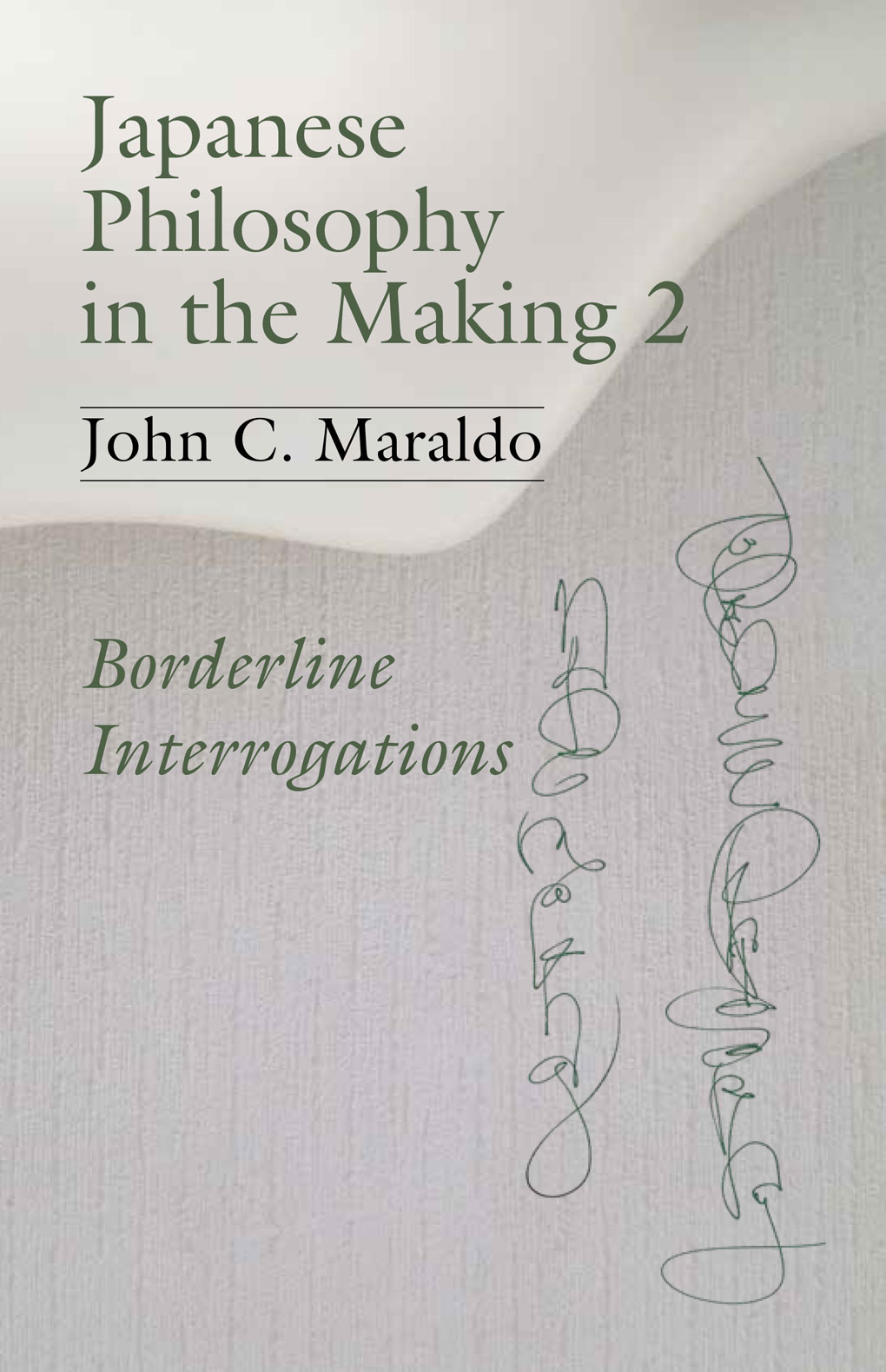
Japanese Philosophy in the Making 2
John C. Maraldo
Japanese Philosophy in the Making 2
Borderline Interrogations
The second of three volumes of essays that engage Japanese philosophers as intercultural thinkers, this collection critically probes seminal works for their historical significance and contemporary relevance. It shows how the relational ethics of Watsuji Tetsurō serves as a resource for new conceptions of trust, dignity, and human rights; how forgiveness empowers the repentance and the sense of responsibility advocated by Tanabe Hajime, and how Kuki Shūzō’s philosophy of contingency puts a fortuitous twist on normative ethics. The author also re-examines the controversy about Kyoto School wartime writings so as to uncover the covert side of today’s empires, and reflects on the hidden consequences of seeing nature as the non-human world. Underlying these investigations is a consistent style that interrogates philosophers for what lies undisclosed and that exposes decisive questions that arise between us and them.
Available from Amazon US, UK, JP, &c. Also available in e-book format for Apple and Kindle.
“Maraldo raises questions that remain unanswered, but also he leads readers up to the edge of his own emerging new work. All that said, it is a welcoming cliffhanger—if this is an exercise in renku, then readers feel invited to contribute the next verse.” — Leah Kalmanson
“This vision of intercultural philosophy is especially germane to the intentional act of world-historical thinking that is modern Japanese philosophy. Maraldo’s work in this volume steps nimbly into this space and gives a thoughtful voice to the “in-between” he both shelters and sings.” —Bradley Douglas Park
